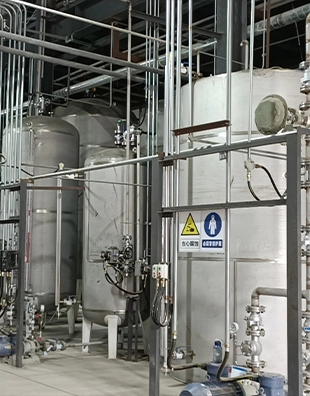Comparison of Zinc HEDP Applications and Benefits in Industrial Processes
The Role of Zinc HEDP in Modern Industries
Zinc Hydroxyethylidene Diphosphonate (Zinc HEDP) is a chemical compound that has garnered significant attention in various industries due to its unique properties and benefits. As a phosphonate, it belongs to a class of chelating agents, widely known for their ability to form stable complexes with metal ions. This article delves into the significance, applications, and benefits of Zinc HEDP, particularly in the context of water treatment and corrosion prevention.
Understanding Zinc HEDP
Zinc HEDP is primarily used as a water treatment agent due to its effectiveness in sequestering calcium and magnesium ions, which can otherwise lead to scaling and precipitation in water systems. The chemical structure of HEDP allows it to bind with metals, making it an excellent chelating agent. When combined with zinc ions, it forms a stable complex that not only helps in preventing scale formation but also imparts protective properties against corrosion.
Applications in Water Treatment
One of the most significant applications of Zinc HEDP is in water treatment systems, particularly for cooling towers, boilers, and industrial water systems. In these environments, the presence of hardness-causing ions can lead to the formation of scale deposits, which reduce efficiency and increase maintenance costs. By utilizing Zinc HEDP, industries can effectively manage these challenges, ensuring smoother operations and extending the lifespan of their equipment.
Moreover, Zinc HEDP is known to be a highly effective biocide. When added to water systems, it helps control microbial growth, including algae and bacteria, which can lead to biofouling and other operational issues. This dual functionality—both as a scale inhibitor and a biocide—makes Zinc HEDP a valuable component in maintaining the health of water systems.
zn hedp 锌hedp

Corrosion Inhibition
Corrosion is a significant concern in various industrial processes, leading to considerable financial losses and safety hazards. Zinc HEDP plays an essential role in corrosion inhibition by forming a protective layer on metal surfaces. This layer acts as a barrier, preventing the oxidation of metals and the subsequent deterioration of equipment. The use of Zinc HEDP in protective coatings enhances the durability and longevity of industrial equipment, ultimately contributing to lower operating costs.
Environmental Considerations
As industries become increasingly aware of their environmental impact, the use of eco-friendly solutions is gaining traction. Zinc HEDP stands out as a safer alternative compared to traditional water treatment chemicals. It is biodegradable and has lower toxicity levels, making it a more environmentally responsible choice for water treatment applications. This is particularly important as regulations surrounding water quality and environmental protection become more stringent.
Conclusion
Zinc HEDP's multifunctionality—acting as a scale inhibitor, biocide, and corrosion inhibitor—makes it an indispensable asset in modern industrial applications. Its role in water treatment processes enhances operational efficiency while minimizing environmental impact. As industries continue to seek sustainable and effective solutions to their challenges, Zinc HEDP will likely remain a critical player in ensuring operational integrity and environmental responsibility. Its integration into various processes not only safeguards equipment but also contributes to the broader goals of sustainable development in an increasingly eco-conscious world.
-
Water Treatment with Flocculant Water TreatmentNewsJun.12,2025
-
Polymaleic AnhydrideNewsJun.12,2025
-
Polyaspartic AcidNewsJun.12,2025
-
Enhance Industrial Processes with IsothiazolinonesNewsJun.12,2025
-
Enhance Industrial Processes with PBTCA SolutionsNewsJun.12,2025
-
Dodecyldimethylbenzylammonium Chloride SolutionsNewsJun.12,2025





